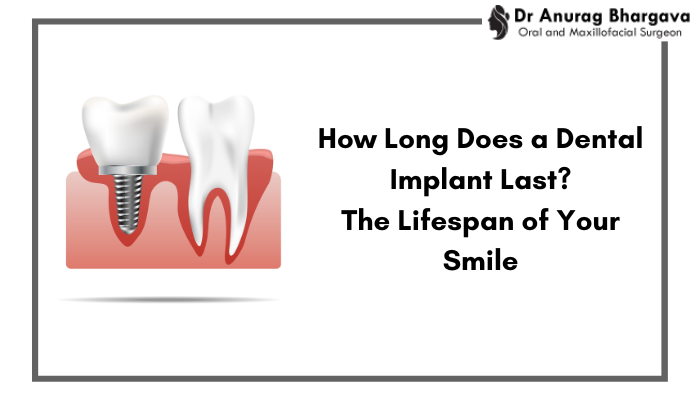In the realm of dental restoration, dental implants stand as the pinnacle of modern innovation, offering individuals a renewed lease on their smiles. Yet, the longevity of these implants is a common concern among many, how long do Dental Implant last?
Let's embark on a journey through the lifespan of dental implants, exploring the durability of the crown, the factors that can compromise implants, and addressing some burning questions that often linger in our minds.
The Lasting Brilliance of Dental Implants
Dental implants are akin to the sturdy foundation of a well-built house, providing stability and permanence to your smile. The crown, the visible part of the implant, plays a crucial role in determining the longevity of the entire structure. Crafted with precision and designed to mimic natural teeth, crowns are resilient, enduring the everyday wear and tear of chewing, speaking, and smiling.
Factors Decreasing Dental Implant Longevity
Several factors contribute to the lifespan of a dental implant. One of the key elements is oral hygiene. Regular brushing, flossing, and routine dental check-ups are vital in maintaining the health of your implants. Additionally, lifestyle choices such as smoking and excessive alcohol consumption can compromise the integrity of the implant, potentially leading to early failure.
Implant failure, although rare, can occur due to factors like:
1. Poor Oral Hygiene
Neglecting Regular Cleaning: Inadequate brushing and flossing can lead to the accumulation of plaque and bacteria around the implant, causing infections and gum disease (peri-implantitis).
Lack of Professional Cleanings: Regular professional cleanings are essential to remove tartar and ensure the implant area remains free from harmful bacteria.
2. Smoking and Tobacco Use
Impact on Healing: Smoking impairs the body's ability to heal, reducing blood flow to the gums and bones. This impedes the implant's ability to fuse with the jawbone properly, leading to failure.
Increased Risk of Infections: Smokers are more prone to infections, which can compromise the stability of the implant and surrounding tissues.
3. Medical Conditions
Diabetes: Poorly managed diabetes can interfere with the body's healing processes, increasing the risk of implant failure.
Autoimmune Disorders: Conditions like rheumatoid arthritis or lupus can affect the body's response to the implant, leading to complications.
4. Insufficient Bone Density
Need for Bone Grafting: If the jawbone lacks the necessary density or volume, it might be necessary to undergo bone grafting procedures to augment the bone and provide a sturdy foundation for the implant.
How Often Do Implants Need to be Replaced?
A common query revolves around the replacement frequency of dental implants. Unlike natural teeth, implants do not develop cavities. With proper care, they can last a lifetime. However, the crown, prosthetic component of the implant, might need replacement due to wear and tear after 10-15 years, depending on individual habits and maintenance.
Is a Dental Implant Permanent?
While dental implants are incredibly durable, the term "permanent" can be a bit misleading. They offer a long-term solution to missing teeth but, like any other dental work, they require regular maintenance and care. The permanence of your implant largely depends on how well you look after it.
Do Dental Implants Get Cavities?
Unlike natural teeth, dental implants are immune to decay. The implant itself is made of materials like titanium, which do not succumb to cavities. However, it’s crucial to maintain healthy gums and surrounding teeth, as gum disease can impact the longevity of your implant. Regular dental cleanings and check-ups are essential to ensure the overall health of your oral cavity.
In conclusion, the lifespan of a dental implant is influenced by various factors, including oral hygiene, lifestyle choices, and regular dental care. While implants themselves are robust and resilient, the crown may need replacement over time. By adopting a diligent oral care routine and attending regular dental appointments, you can ensure your dental implant provides you with a radiant smile for many years to come.

